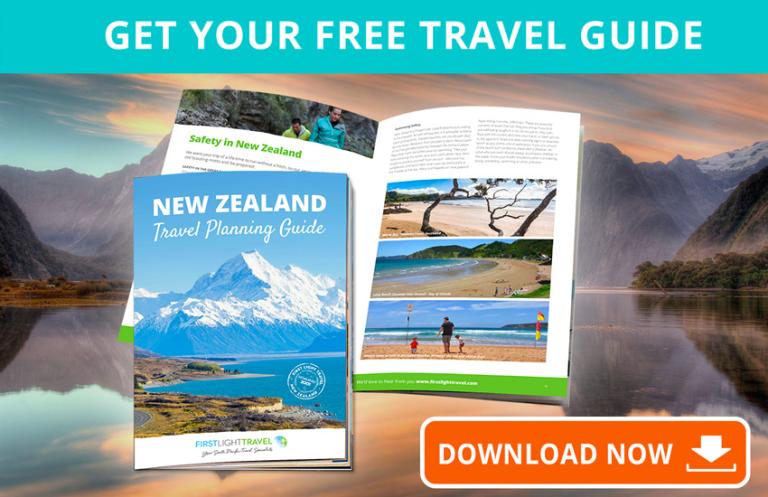Business and Retail Hours
General business hours are from 8.30am to 5.30pm, Monday to Friday. Supermarkets, retail stores and local convenience stores are also open during the weekend with large supermarkets operating from 7am - 10pm. Petrol stations may operate 24 hours in larger centres. Operating hours in rural and smaller towns may be much shorter so it pays to plan ahead.
Climate
Read more in our section on the Best times to come to New Zealand. The climate is changeable and in alpine environments can be unpredictable. Pack wisely and with layers.
Currency and Money
New Zealand has a decimal currency system with notes in denominations of 5, 10, 20, 50 and 100. We use a $1, $2, 50, 20, and 10 coin. We operate the Swedish Rounding System, where by prices ending in 1 to 4 cents are rounded down, and prices ending in 6 to 9 cents are rounded up.
Major credit cards are widely accepted. Automatic Teller Machines (ATMs) are commonly found in retail/urban centres. EFTPOS (Electronic Funds Transfer at Point of Sale) and PayWave are commonly used. Travellers cheques may be exchanged at many banks, hotels and Bureau de Change in international airports.
Dangers and Annoyances
As with most developed countries, travellers should be aware of their own personal safety and for possessions. There are similar levels of crime to other first world countries.
Travellers have no need to fear the wildlife in New Zealand. Apart from two poisonous spiders (the native red backed Katipo spider and the introduced, white-tailed spider, who have bites which are rarely fatal) there are no poisonous snakes or other creatures. Sandflies can be pesky, so carry insect repellant.
The harsh New Zealand sun can catch out travellers to our country - whether on the beach, the snow fields or on the water. Remember to regularly apply sunscreen, wear hats and use protective eye wear.
New Zealand's many beautiful waterways must be treated with respect. Always exercise caution when swimming in unknown beaches, rivers, lakes and waterways. Never swim or surf alone or after drinking alcohol. If a beach is patrolled by lifeguards, swim between the yellow and red flags and heed the warning signs.
Driving
Driving is on the left hand side, which reflects our British heritage. You can legally drive in New Zealand for up to one year with a current and valid driver's licence. If your licence is not in English, you should bring an English translation with you as rental car companies may require it. Read more about Driving in New Zealand. Roads in rural and remote areas can be winding, narrow and hazardous. Exercise extreme caution when driving and always drive to the conditions.
Emergency Services
In an emergency, dial 111 for police, fire or ambulance services.
Health, Vaccinations and Medical Facilities
There are no vaccinations required to enter New Zealand. However, medical care is not free for visitors and health insurance is recommended for all travellers. If you need to bring in large quantities of medicines, you are advised to also bring a certificate from your doctor to avoid any issues with New Zealand Customs on arrival. There is a high standard of medical care in New Zealand. Many pharmaceutical medicines are not available without a prescription.
Holidays
New Zealand’s national day is Waitangi Day (6 February), marking the signing of the Treaty of Waitangi in 1840. Other special days include Anzac Day (25 April), a commemoration of the Australia and New Zealand Army Corps’ ill-fated Battle of Gallipoli during World War I, and Labour Day (October), celebrating the economical and social achievements of workers. And Christmas is extra-special, too. It falls in summer in this part of the world, so many Kiwis love to spend their Christmas Day at the beach!
When are the school holidays in New Zealand?
Dates may vary by a few days from school to school but most New Zealand schools are on holiday on these dates.
29th September – 14th October 2018
21st December 2018 – 27th January 2019 (primary schools)
19th December 2018 – 6th February 2019 (secondary schools)
13th April – 28th April 2019
6th July – 21st July 2019
28th September – 13th October 2019
21st December 2019 – 26th January 2020 (primary schools)
14th December 2019 – 6th February 2020 (secondary schools)
10th April – 27th April 2020
4th July – 19th July 2020
26th September – 11th October 2020
19th December 2020 – 24th January 2021 (primary schools)
17th December 2020 – 6th February 2021 (secondary schools)
Internet/ Phone /Electricity
If you are bringing mobile devices such as phones, laptops and tablets and want to stay connected during your journey you have a few different options. Free WiFi hotspots are found in major cities, airports and hotels. Mobile phone coverage may be limited in remote and some rural areas. You can purchase a plan from a mobile network provider (such as Spark, Vodafone, 2degrees, Skinny) by going into one of their branches and discussing your needs.
Public telephones are widely available in New Zealand although most only accept phone cards. Some accept major credit cards and coins. Local calls cost approximately 70 cents.
Electricity is supplied at 230/240 volts, 50 hertz. Power outlets only accept flat three or two pin plugs (the same as the rest of Australasia). An adaptor/convertor will be necessary for appliances.
Immigration
For information on visas, permits and emigrating to New Zealand, look into our visa & immigration section or visit the Immigration New Zealand website.
Measurement systems
New Zealand uses the metric system of measurement.
1 centimeter (cm) = 0.39 inches
1 meter (m) = 1.1 yards
1 km (kilometer) = 0.62 miles
To convert from C to F: multiply by 9, divide by 5 and add 32.
Protecting the Environment
To protect the unique flora and fauna in New Zealand, there are very strict biosecurity rules for all travellers entering the country. For information on what food and items must not be brought in, what is restricted, prohibited or must be declared, visit the Ministry for Primary Industries website.
Public Holidays
During public holidays, sites and attractions may be closed or busier than usual so travellers should plan ahead. See the dates for national public holidays and regional holidays in New Zealand. School holidays may also add to busy times.
Service Charges and Tipping
Tipping is not obligatory but is appreciated for exceptional service or kindnesses. Five to 10 percent is an acceptable amount. Service charges are generally not added to bills by hotels, restaurants and bars. Occasionally a service charge is added to food and hospitality charges on a public holiday.
Smoking
Smoking is not allowed in most public buildings, including bars and restaurants and may be restricted in public spaces (look for signs where this applies). A growing number of restaurants and bars have now have set up outdoor seating areas and some of those accommodate smokers.
Tax
New Zealand has a compulsory goods and services tax (GST) of 15%. This tax is not refundable when leaving New Zealand and must be paid by all visitors.
There is a departure tax of NZ$25 per passenger, which is paid at the airport branches of the Bank of New Zealand or at one of the self-service credit card kiosks in the airport international terminal.
Time Zone and Daylight Saving
New Zealand is one of the first places in the world to see the dawn, operating at 12 hours ahead of Greenwich Mean Time (GMT). Daylight saving begins on the last Sunday in September and finishes on the first Sunday in April. Clocks move forward one hour during this period, making us GMT + 13 hours.
Transport
The larger urban centres are served by taxis (including Uber), buses, ferries and trains.
Travellers with Disabilities
Most tourism facilities have wheelchair access but it is advisable to check before booking. New health and safety legislation requires that all new buildings and reconstructions are wheelchair accessible. You can apply to for parking permits for disabled drivers.
Water
Tap water is safe to drink in rural towns and cities however we advise boiling or treating water that comes from natural lakes and waterways. Larger centres may fluoridate their water supplies.
Suggested Packing
New Zealanders are regarded as fairly casual dressers (although you may need to dress more formally for an art event or when visiting a fine dining restaurant). For summer visits it is advisable to bring a light sweater or wind-breakers for cooler evenings and brisk days, especially if you are planning to travel to the South Island. Medium-thick clothing and layers, hats and gloves are essential for mountain peaks and glaciers. A raincoat and strong walking boots/shoes are useful. For the keen nature lover bird and wildlife guide books are a good local purchase. For digital camera users compact flash cards are expensive in New Zealand so it is best to purchase these in advance. For packing lists and further comprehensive info please refer to What to pack for your New Zealand Holiday.
Language
New Zealanders speak English as a first language, although some may still speak traditional Maori.
More articles to help you plan your trip to New Zealand
Getting to New Zealand
New Zealand Passport and Visa Requirements
Smooth as possible on arrival to New Zealand
Travel Insurance for New Zealand
Doubtful Sound or Milford Sound?
Which New Zealand Glacier to Visit?
Driving in New Zealand
Safety in New Zealand's Great Outdoors
What to Pack for a New Zealand Holiday
New Zealand Accommodation Guide
What is the Best Time to Visit New Zealand?
What do things cost in New Zealand



